Beha’aloscha 5782 – Excuses: Their Meaning & True Source
לזכות רפו”ש צבי מרדכי בן
הדסה ברכה בתשח”י
Consider sponsoring a shiur
Visit YTATorah.org
Shiur presented in 5779
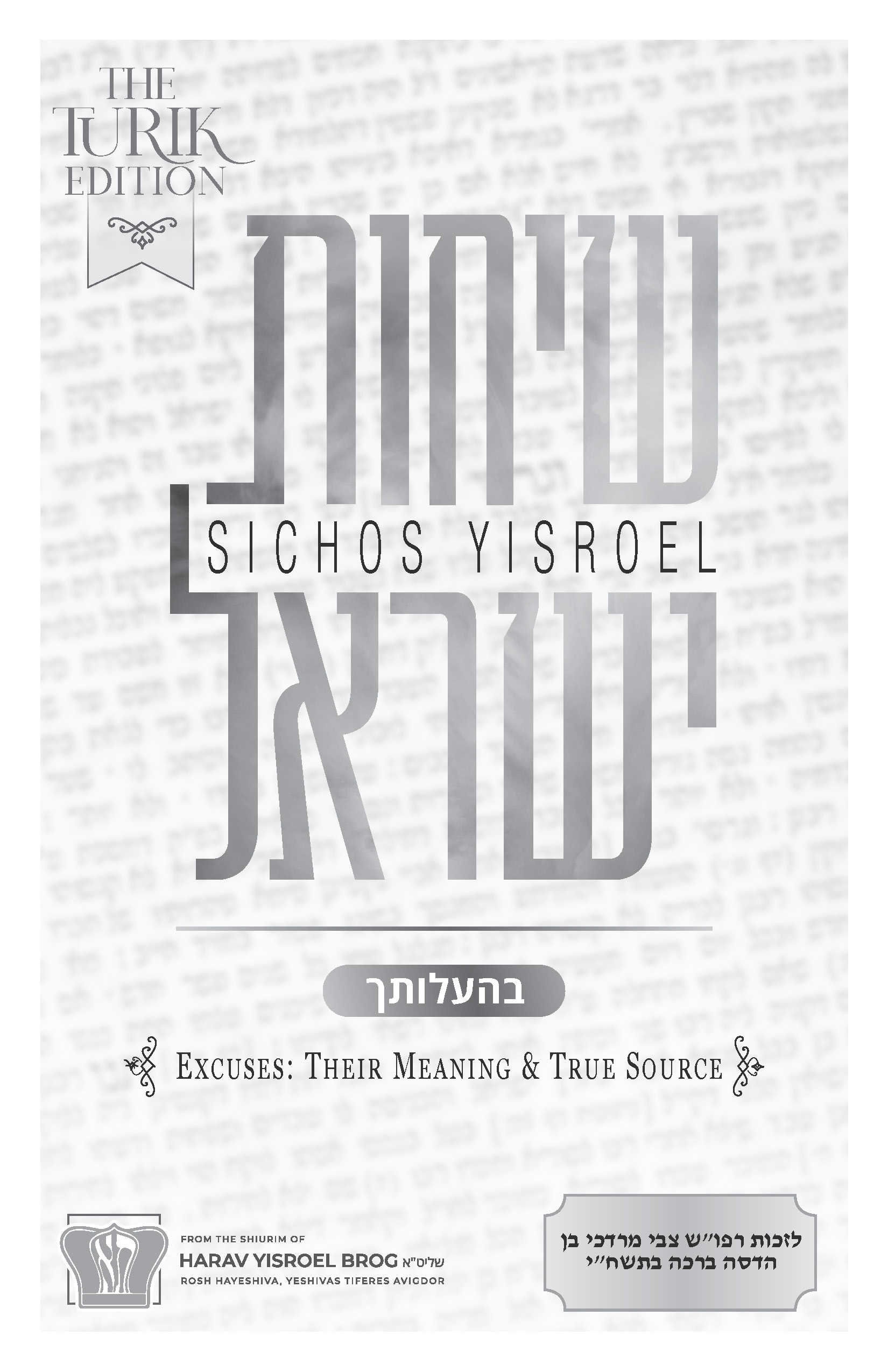
לזכות רפו”ש צבי מרדכי בן
הדסה ברכה בתשח”י
Consider sponsoring a shiur
Visit YTATorah.org
Shiur presented in 5779
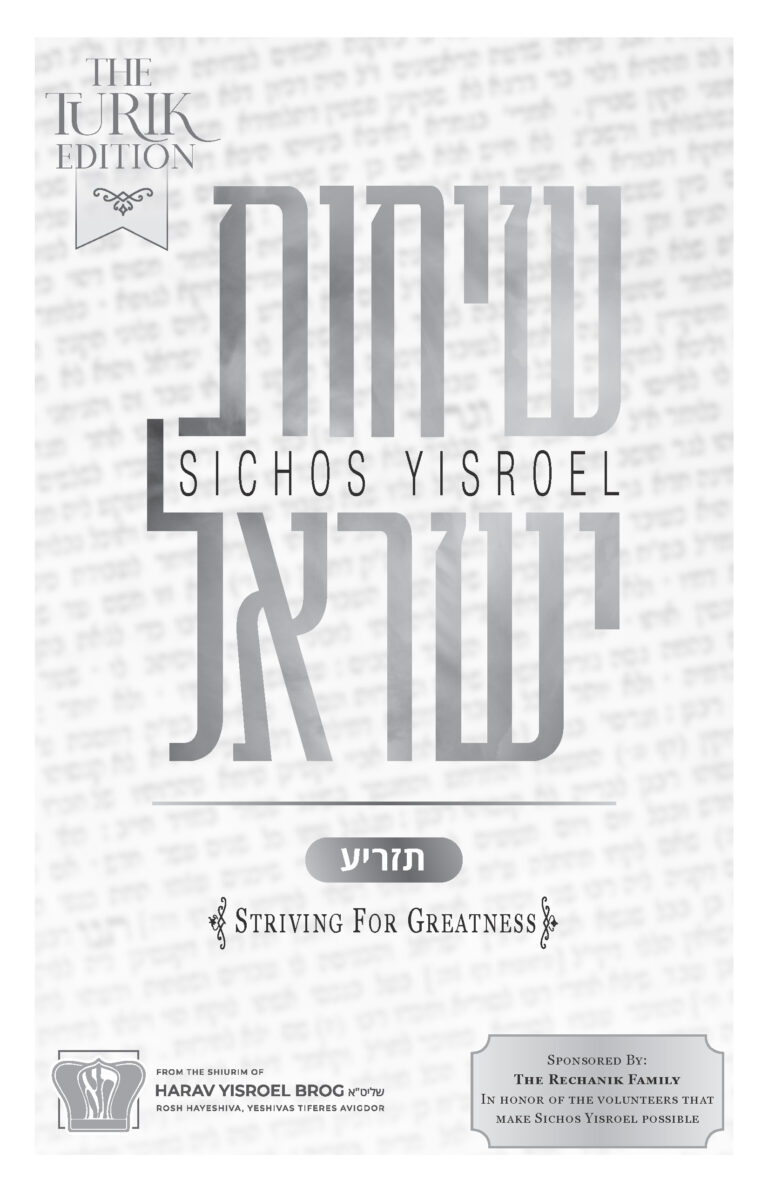
Sponsored By: The Rechanik Family In honor of the volunteers that make Sichos Yisroel possible Visit YTATorah.org Shiur presented in 5772

Parshas Bechukosai falls out almost every year right before Shavuos, or close to Shavuos. The subject of Parshas Bechukosai, as many people will tell you, is klalos and brachos, or tochachah. But the emes is that tochachah is only the end result. Many of us deal with symptoms but we don’t think about the reason for the symptoms. You always have to search for the reason for the symptoms.
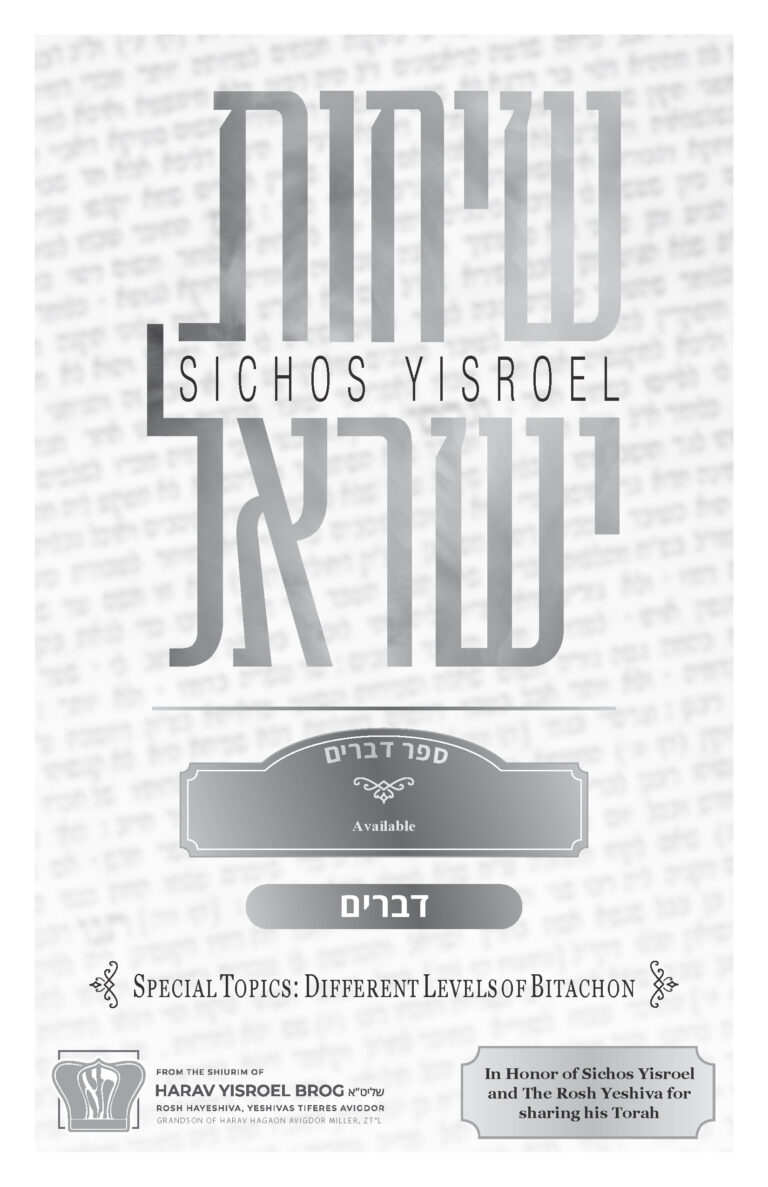
n parshas Chukas, a famous episode took place where Klal Yisrael began to complain to Hashem and complain to Moshe. They were saying all kinds of nasty things. “Why did you take us out of Mitzrayim? What kind of food are you giving us?” And Hashem got upset and sent them a “present.” It wasn’t the kind of present that we’re looking forward to.
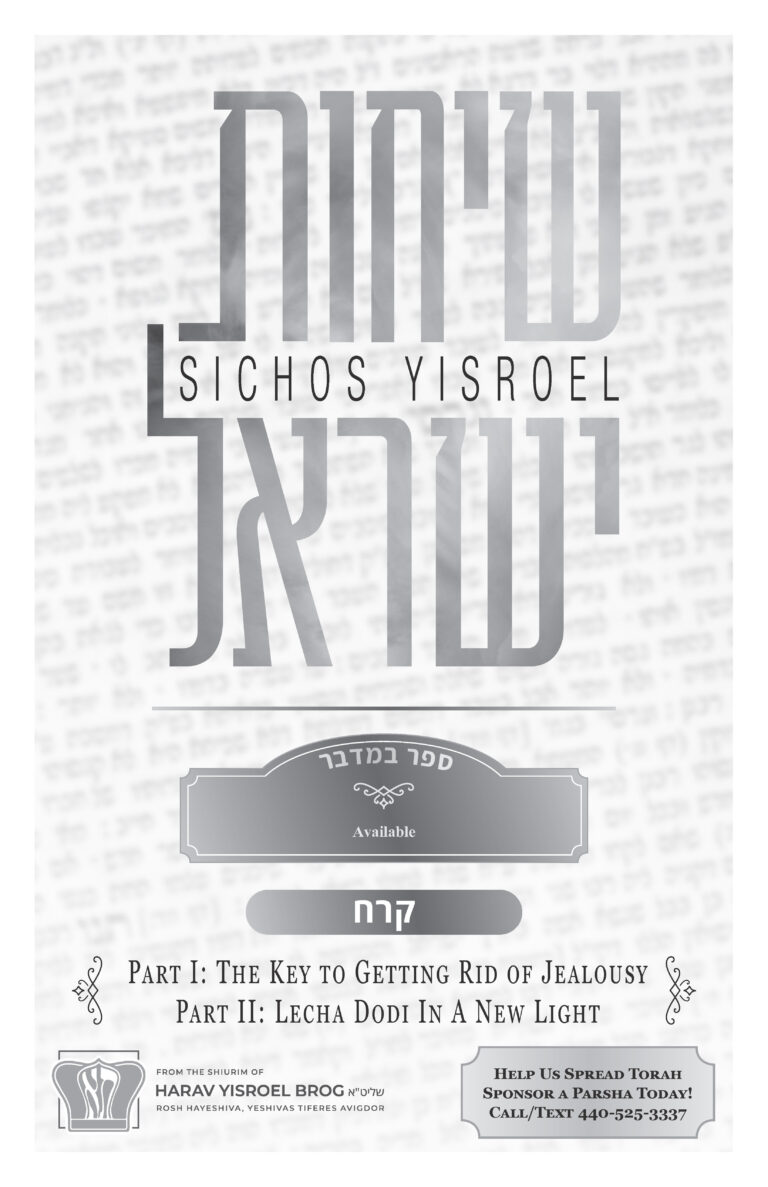
In the past, we have spoken about a massive problem, a challenge the people have with kinah, jealousy, and with sinah, hatred. Today, we would like to discuss the ways and means to deal with these issues. If you think about it, it is really a pachad how much kinah and sinah good individuals have and suffer from – even righteous people, chashuve people. I once heard of a story about two big tzadikim who had a sichsuch (argument) between them, and each one had tainos on the other. One of them was a very…
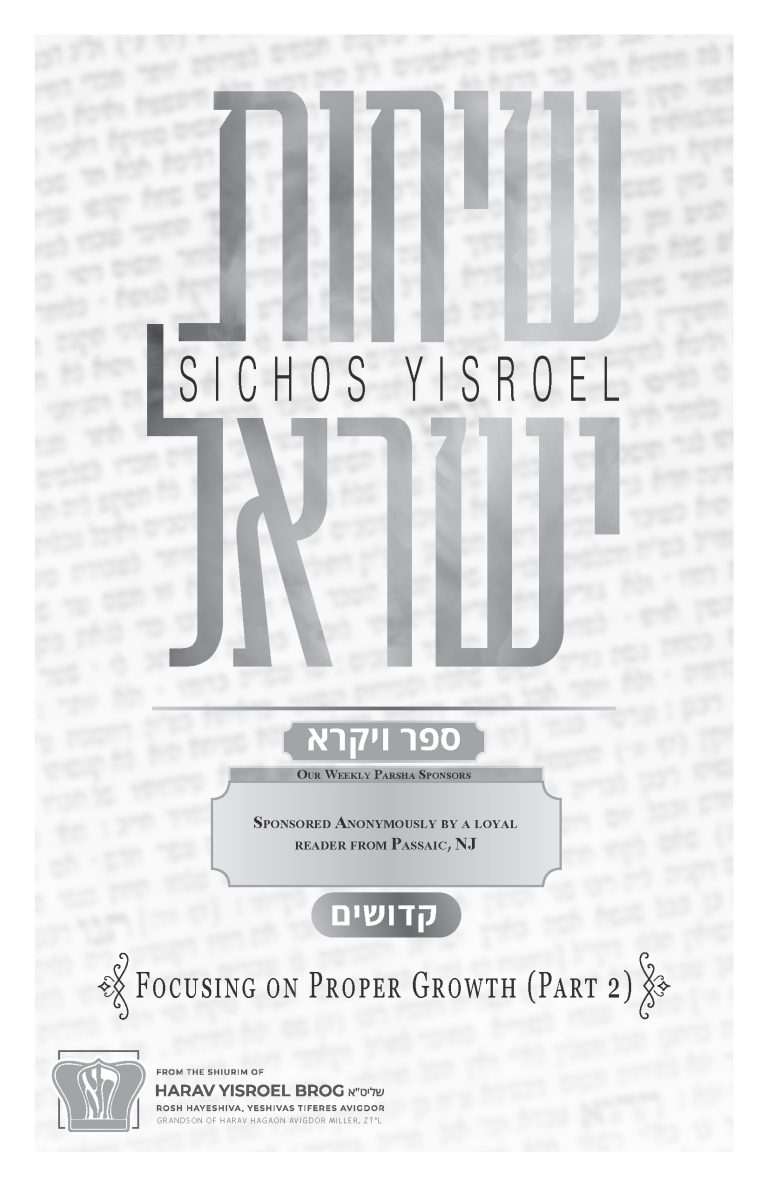
In this week’s parshah, it says “and Hashem spoke to Moshe, saying: ‘Speak to all of Bnei Yisroel…” (Vayikra 19:2). You have to know that this is a very rare introduction. There’s “speak to Bnei Yisroel” but “speak to all Bnei Yisroel” is very unique. Hashem wanted every single part of Klal Yisrael to be involved in this parshah. Rashi points out that for this parashah Klal Yisrael was commanded to come together and to hear directly what Moshe Rabeinu had to say.
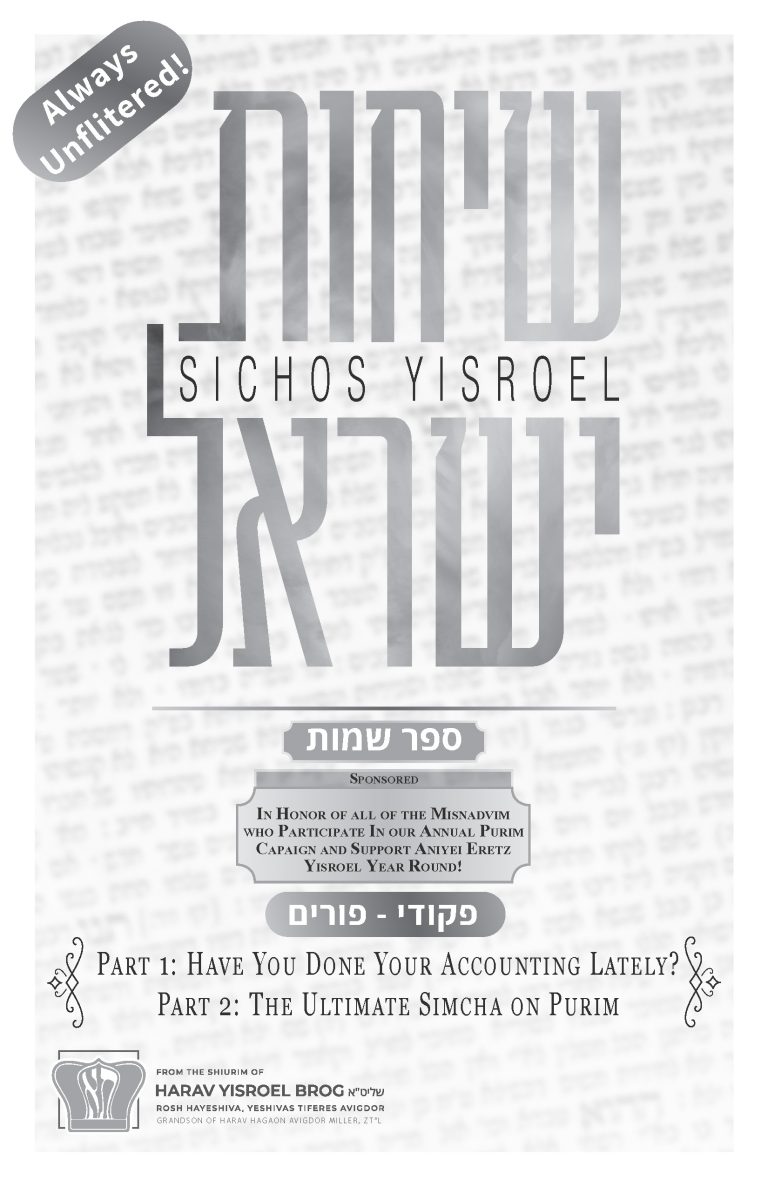
The parshah begins by saying “these are the cheshbonos, the accountings, of the donations for the Mishkan”. The word “pekudei” means counting. When you have a lot of different things to take into account and keep track of, that’s called pekudei.